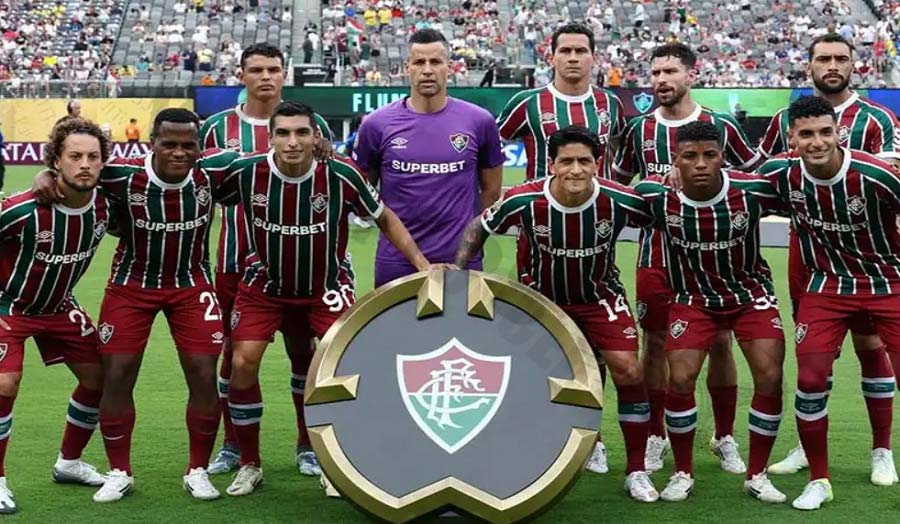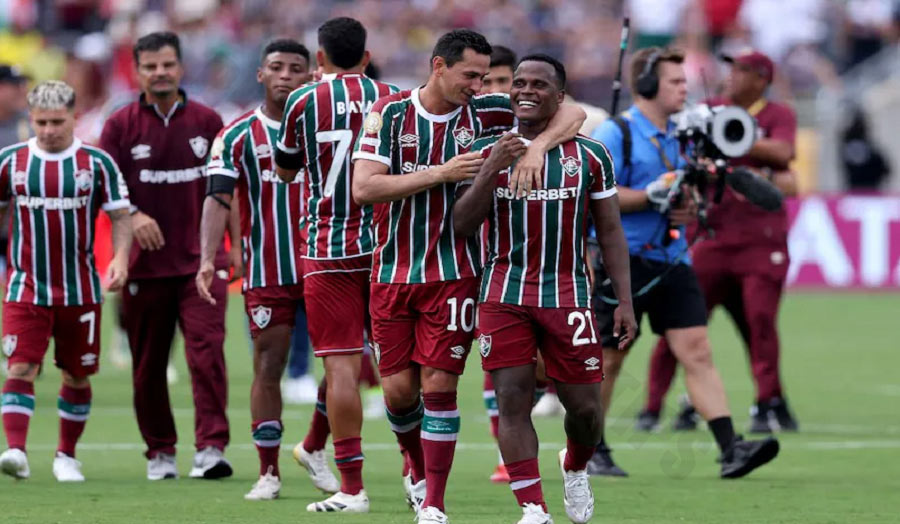What is Fluminense football club? History and notable achievements of the club
Football is not only the king of sports, but also a place to preserve memories, pride and cultural identity of many communities around the world. In Brazil, the cradle of many football legends, there is a club with a deep history and special traditional spirit: Fluminense. So, what is Fluminense football club? Not just a football team, Fluminense is a living symbol of the city of Rio de Janeiro, the pride of many generations of fans since its founding in 1902. From the typical shirt color to the unique playing style, from the resounding titles to the local fan community – all have created a unique Fluminense. Let’s explore the journey of more than a hundred years of this football team with Premiumsoccertips.net to understand why Fluminense is not just a name, but a legacy.
What is Fluminense football club?
Fluminense Football Club, commonly referred to as Fluminense or Flu, is a professional football club based in Rio de Janeiro, Brazil. It is one of the oldest and most traditional football clubs in the South American country. Fluminense is known not only for its glorious history but also for its unique identity in the colours, football philosophy and loyal fan base.

The club was founded on 21 July 1902 by Oscar Cox, a pioneer of football in Brazil, after returning from Europe. Fluminense was the first football club founded by Brazilians, while many other teams at that time had their origins in immigrant communities.
Symbols and colours
The Fluminense emblem is a shield-shaped badge in the traditional three colours of wine red (grená), green and white, with the letters F, F and C intertwined an abbreviation for “Fluminense Football Club”.
These three colours are not only used on the jersey but also on all the club’s merchandise, banners and support culture. They represent the club’s fundamental values of nobility, tradition and faith.
History and achievements
Over more than a century of formation and development, Fluminense has left a deep impression on fans with brilliant historical milestones and impressive achievements in both domestic and international arenas.
Early stages and affirmation in Rio de Janeiro
As early as 1906, just four years after its foundation, Fluminense won its first championship in the Campeonato Carioca the Rio de Janeiro state championship. This was the most important tournament in Brazil at that time, before the official national tournaments were organized.

Since then, Fluminense has been one of the strong and solid opponents in the state of Rio de Janeiro, competing on equal terms with big teams such as Flamengo, Botafogo and Vasco da Gama. This helped the team affirm its important position in local football.
Fluminense Club Milestones
- 1951: Wins the Rio Cup, the first international tournament organized by FIFA, considered the “precursor of the Club World Cup”
- 1970: Wins the Brazilian National Championship (Campeonato Brasileiro Série A) for the first time
- 1984: Wins the national championship for the second time, under coach Carlos Alberto Parreira
- 2008: Reaches the Copa Libertadores final for the first time, despite losing to LDU Quito
- 2010 & 2012: Wins two consecutive national championships, peak period with Fred, Deco, Thiago Neves
- 2023: Wins the Copa Libertadores for the first time in the club’s 121-year history, marking a brilliant milestone for the club
Following bet football tips will help you stay one step ahead in picking the right players and maximizing your profits.
Summary of the main titles of Fluminense football club
The titles that Fluminense has won over the years are not only a testament to the strength and class of the team, but also a reflection of the persistent journey to conquer glory throughout more than a century of existence.
Domestically:
- Campeonato Brasileiro Série A (Brazilian National Championship): 4 times (1970, 1984, 2010, 2012)
- Copa do Brasil: 1 time (2007)
- Campeonato Carioca (Rio State Championship): 33 times, ranked 2nd in the history of the tournament
- Taça Rio & Taça Guanabara: Dozens of times champion of the state system
Internationally:
- Copa Libertadores: 1 time champion (2023), 1 time runner-up (2008)
- FIFA Club World Cup: Runner-up (2023, lost to Manchester City)
Fan culture and social symbol
Fluminense is not just a football club, but also a profound cultural symbol of the city of Rio de Janeiro. With its intellectual, loyal and proud fan base often called the “Tricolores” the club has carved a deep mark in the hearts of generations. Supporter groups such as Young Flu, Força Flu and international associations such as FluEuropa and FluUSA not only fuel the team but also contribute to preserving and spreading the Fluminense identity around the world.

The heart of that spirit is the Maracanã stadium the football mecca where Fluminense now plays. Although they used to have their own stadium in Laranjeiras, the team now shares the Maracanã with Flamengo. With a capacity of nearly 80,000, the stadium has witnessed historic moments, including the 2023 Copa Libertadores championship Fluminense’s crowning achievement in South American football.
When talking about Fluminense’s identity, it is impossible not to mention the “Fla-Flu” derby the classic confrontation with Flamengo. This is not just a football match, but a confrontation between two social classes: Fluminense intellectuals, Flamengo the masses. From 1912 to the present, more than 400 Fla-Flu matches have taken place, culminating in the 1963 match with nearly 200,000 spectators a testament to the special cultural appeal of Fluminense in the hearts of Brazilian fans.
To Wrap It Up
So through this article, you have learned about what is Fluminense football club? It is a symbol of pride, history and identity of Brazilian football. Not only is it a team with dozens of titles at home and abroad, Fluminense is also a place where passion, tradition and aspiration to reach the world converge. From the early days of Brazilian football to the 2023 Copa Libertadores championship, Fluminense has been, is and will always be an endless source of inspiration for fans, a testament to the power of loyalty, competitive spirit and indomitable spirit of top-level sports.








